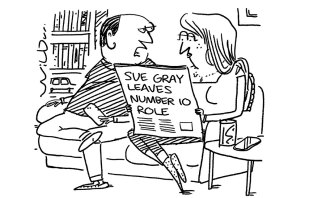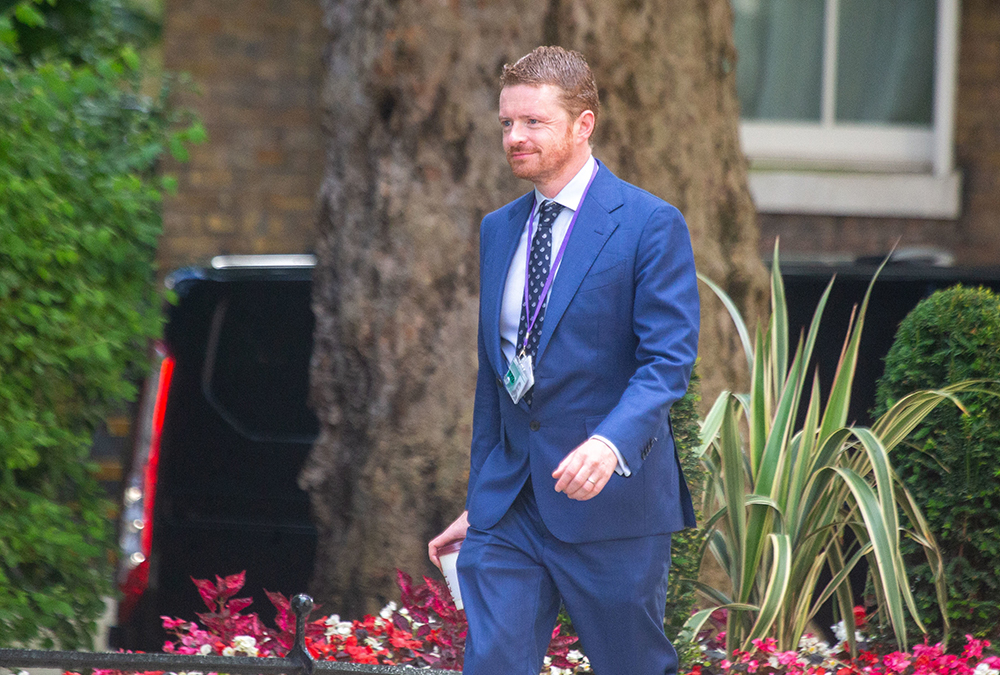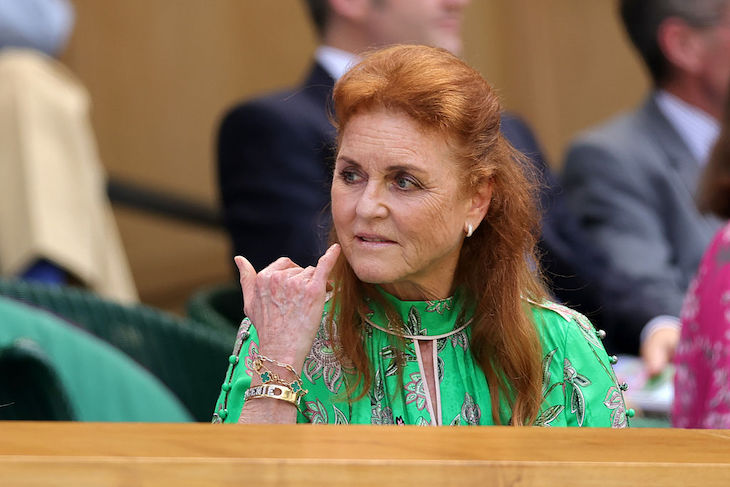The Queen is dead: long live the King. This week brought an end to Downing Street’s unhappy experiment in dyarchy. Out goes Sue Gray, banished to the regions. In her place stands the Irishman who won the No. 10 power struggle: Morgan McSweeney, Keir Starmer’s first chief of staff in opposition, is back on top. McSweeney’s allies believe that the new government will flourish into maturity after a troubled start. ‘We’re back to being political,’ one crows.
As another minister prefers to put it: ‘He needs to go around and crack some heads – and quick’
The new chief’s strengths are threefold. First, he is familiar with how the PM thinks. Unlike Gray – who knew little of Starmer before her appointment – McSweeney has been intimately involved in his rise to power. He ran Starmer’s leadership campaign in early 2020, served as head of his team for the next 18 months, then moved aside after the Hartlepool by-election humiliation before overseeing Labour’s landslide victory in July. The pair have spoken ‘almost every day for the past five years’, says one adviser, celebrating triumphs and dissecting defeats together. ‘He grew as a leader with Morgan next to him,’ says one insider. ‘They won together – and Morgan grew into this winning figure because of him.’ Aides and officials hope that McSweeney’s knowledge of his master’s mind will help him make decisions faster than Gray.
That knowledge speaks to McSweeney’s second strength: his confidence. ‘He’s won,’ says an adviser. ‘He is clearly the top dog.’ Gray’s demotion – as well as wider staff changes – ends chatter about which of them is more senior. As undisputed head of the No. 10 machine, McSweeney can afford to spread the load of governing. ‘He needs to empower the staff around him so they feel confident to tell secretaries of state what to do,’ says a Whitehall veteran. The recruitment of James Lyons as director of strategic communications is cited as one such example. The hope is that Lyons, a former Fleet Street hack, will improve No. 10’s ability to spot media pitfalls ahead of time. The new deputy chiefs of staff are Jill Cuthbertson, a Labour loyalist who was present for both Gordon Brown’s ‘bigotgate’ and Ed Miliband’s brush with a bacon sandwich, and Vidhya Alakeson, who ran the party’s outreach to business during the election. They are the first in a series of hires as McSweeney strengthens the political team within No. 10.
Filling such roles is where McSweeney’s third strength comes in. Twenty years rising through the Labour ranks have given him an intimate knowledge of its figures and factions. He got Steve Reed elected as council leader in Lambeth, ran Liz Kendall’s 2015 leadership bid and first met Labour’s general secretary, Hollie Ridley, when they fought the BNP in Barking together. His allies form the upper echelons of Starmer’s government. ‘The Praetorian Guard surround the Emperor,’ remarks one Labourite. Within Whitehall, some hope McSweeney’s grasp of the party will help officials make more informed judgments on new ministers’ priorities.
But this being Labour, not all are happy about McSweeney’s appointment. Critics question his effectiveness in steering government. One aide says she was ‘thoroughly unconvinced’ about McSweeney’s ‘short-lived reign’ as chief of staff in opposition. ‘He was never very good at setting direction outside of a very select group, so it never felt like ploughing in the same direction.’ Few doubt McSweeney’s skill as a campaigner, but some question whether it can be sustained over five years in office. ‘Morgan’s MO is “winning”, which he has done very successfully,’ says a former colleague. ‘But that’s not a political programme for government.’ His defenders recall the words of Bill Clinton’s great strategist, James Carville: ‘Campaigning prepares you for governing. It prepares you to get hit, stand strong and, if necessary, hit back.’
Those around McSweeney say he wants an ‘insurgency’ mindset – a word he has used publicly, too. Such talk might evoke memories of Dominic Cummings’s supposed ‘war on Whitehall’. Yet McSweeney’s supporters suggest he’s emphasising a focus on delivery after the drift of the past 100 days. ‘Massaging existing institutions will not cut it,’ remarks one MP. Or, as another minister prefers to put it: ‘He needs to go around and crack some heads – and quick.’ McSweeney also shared his vision to aides at ‘Spad school’. His promise of a ‘new chapter’ was met with applause while Ridley pledged to put politics at the heart of government.

Without upgrading the machinery of government, though, some fear Labour risks falling victim to No.10’s patterns of failure. To this end, in the coming days it is expected that Labour will name five ‘mission chiefs’ who will work with ministers on policy implementation. They will work closely with Pat McFadden – the man many consider the ‘de facto deputy PM’.
Within the Cabinet Office, the ‘mission delivery unit’ is up and running, based on the work of the Future Governance Forum, a thinktank run by McSweeney’s ally Nathan Yeowell. Institutional reforms will be accompanied by personnel changes, too. A slew of permanent secretaries will leave in the next year, while applications for cabinet secretary close next Sunday. The replacement of Gray could influence Starmer in his decision regarding who follows Simon Case.
Labour’s woes have been met with wry amusement on the opposite benches. Yet wiser Tories know a shaky start could teach Starmer’s team some hard-earned lessons about the realities of office. ‘Even amoebas learn,’ says one shadow minister. The Conservatives could face a tougher No. 10 operation in future – just as they start trying to rediscover the muscle memory of opposition. Some MPs marvel at the novelty of having to invent party policy on a daily basis; others miss the comfort of the Whitehall machine. ‘The leadership stuff is a distraction,’ admits one ex-minister. ‘We can laugh at Labour but where’s our five-year plan?’
After 14 years of political churn, both parties are still getting used to their new places in parliament. While the Tories seek to fill the leadership vacuum, there is no debate in Labour about who is in charge. Starmer has given McSweeney the position he always wanted: chief of staff in a Labour government. If his appointment fails to reboot things, it will not just be McSweeney’s future at risk – but Starmer’s.








Comments